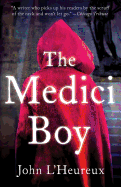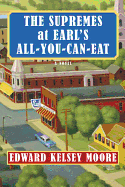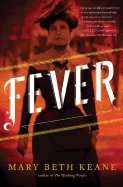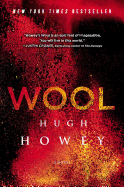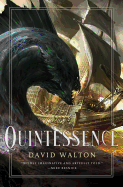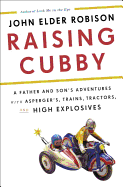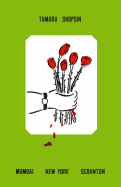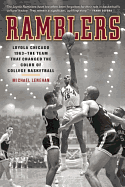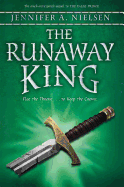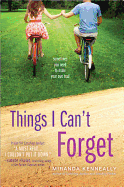 |
| photo: Michael Lionstar |
Edward Kelsey Moore lives in Chicago, where he is also a professional cellist. His short fiction has appeared in many literary magazines and has been performed on National Public Radio. The Supremes at Earl's All-You-Can-Eat (just out from Knopf) is Moore's first novel . (See our review below.)
Give us some background on how this book took shape for you.
The Supremes began as a short story about a woman entertaining her two best friends with the tale of a family wedding she had recently attended. It was a funny story and I really liked the characters, but it never quite worked. In an effort to make something out of it, I imagined backstories for the three women. Eventually, the shared history I made up for them became so interesting to me that I put aside the novel I was working on and allowed the three women to have their say.
Does your music career influence your writing? What is it like to juggle two such demanding careers?
Being a musician definitely influences my writing. I often write about musicians and the role that music plays in people's lives. Also, in order to make the process of writing my first novel seem less scary, I thought of the musical forms I was familiar with--like sonata and rondo--to give structure to the story. I've learned that being a cellist also sneaks into my writing in ways I'm not aware of. A couple of the early readers of The Supremes pointed out to me that I frequently write about what my characters are listening to at crucial moments. I had no idea I was doing that. I'm sure I'll discover more ways that my music career influences me as time goes by. I'm content to let them be surprises.
The music world and the literary world are very different and it can be a little disconcerting to shift gears as I step from one arena into the other. But the only challenging aspect of having the two careers is that sometimes there aren't enough hours in the day to ensure that I can always do my best at both. I have the good fortune of being able to enjoy two careers that I truly love. I'm too busy feeling lucky to stop and think about any difficulties involved in balancing the two jobs. It's as if I woke up one morning and found a plate of chocolate cake resting on my right palm and a plate of cherry pie on my left. Whenever I start to worry about having both hands full, a voice in my head yells, "Hurray, double dessert!"
The people of Plainview are so vivid--they come alive on the page. Reading The Supremes, it feels as if you love your characters, as though they were real people.
I am genuinely fond of my characters, even the ones I'd want to strangle in real life. I think great friendships make us better versions of ourselves. The Supremes are always helping each other to be more than they would have been on their own. I adore them for that.
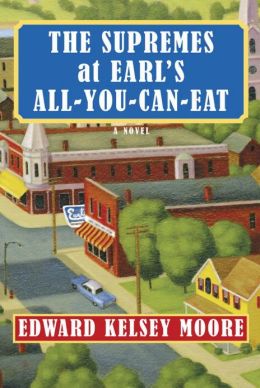 A major theme of The Supremes is midlife, especially women grappling with the challenges of midlife. What drew you to this theme?
A major theme of The Supremes is midlife, especially women grappling with the challenges of midlife. What drew you to this theme?
I'm a debut novelist, but I'm also a man in midlife, and most of my women friends and colleagues are around my age. Whenever we talk, certain topics come up repeatedly. As I wrote about three women in midlife, it seemed natural for them to ask themselves the same questions my friends were asking: Will my relationship sustain me into old age? Will I ever be able to rectify the mistakes of my past? Will my children thrive? How long can I count on being healthy?
By the way, most of my male friends are asking themselves the same questions. It just usually takes a lot more booze before they're willing to say something aloud.
Your use of ghosts brings to mind Toni Morrison's Beloved, though in a much more lighthearted context. What function does the supernatural serve in this story?
When Odette, Clarice and Barbara Jean walk into the All-You-Can-Eat, they bring their shared past with them. All three of them are nurtured, blessed and haunted by that past. I think of the ghosts who appear to Odette as a manifestation of the history that people who have loved each other for a long period of time carry with them.
While there is evil in The Supremes, mainly in the form of racism, most of the characters are basically good, even when they make terrible mistakes. Does this reflect your view of human nature?
I don't believe that people are naturally inclined toward good or toward evil. But I think that, when given the opportunity and a safe environment to do so, most people want to show the best aspects of their character. As a writer, I tend to be more interested in what it takes for people to manage the challenges of life with decency than I am in exploring the ways evil people manage to twist the knife.
Odette is hilarious, and the heart of the novel. When you were writing The Supremes, did she ever surprise you?
She surprised me quite a lot, mostly in her love for James. Because she was such a formidable woman, I thought she would keep the passion and the vulnerability that comes with it at a distance. But as I wrote, it became clear that she was madly in love with James and there was no way she could control it or contain it. I let her show me the way and, throughout the novel, she and I were both astonished by the depth of her love for him.
Any plans for your next novel?
I'm writing a new novel right now. I'm not at the fun stage yet--I love revising--but it's coming along. --Ilana Teitelbaum, book reviewer at the Huffington Post
Edward Kelsey Moore: Double Dessert
 Readers tell Kenneally her books are like Friday Night Lights set in Tennessee. "I can see how Franklin is like Dillon, Tex.," the author said. "I have worked hard to show the socioeconomic climate; people seem to be either super rich or really poor." Growing up in Tennessee, she saw that everyone was divided into distinct groups and how hard it could be to cross those lines.
Readers tell Kenneally her books are like Friday Night Lights set in Tennessee. "I can see how Franklin is like Dillon, Tex.," the author said. "I have worked hard to show the socioeconomic climate; people seem to be either super rich or really poor." Growing up in Tennessee, she saw that everyone was divided into distinct groups and how hard it could be to cross those lines.



 A major theme of The Supremes is midlife, especially women grappling with the challenges of midlife. What drew you to this theme?
A major theme of The Supremes is midlife, especially women grappling with the challenges of midlife. What drew you to this theme?

